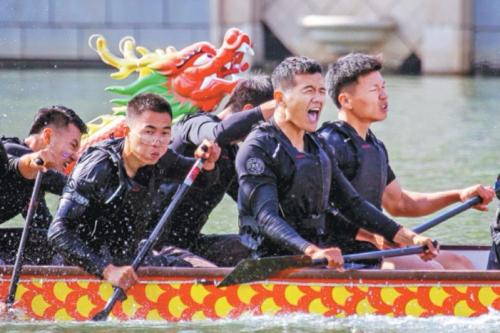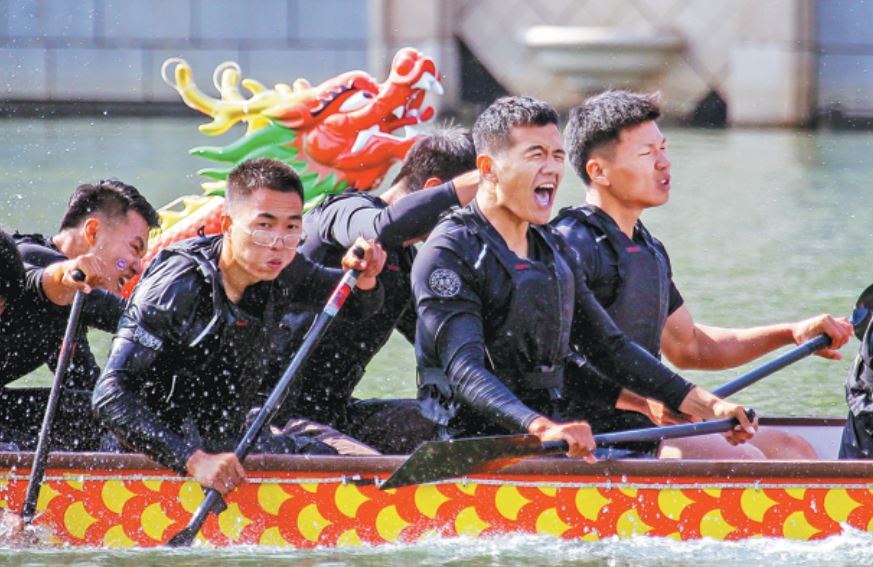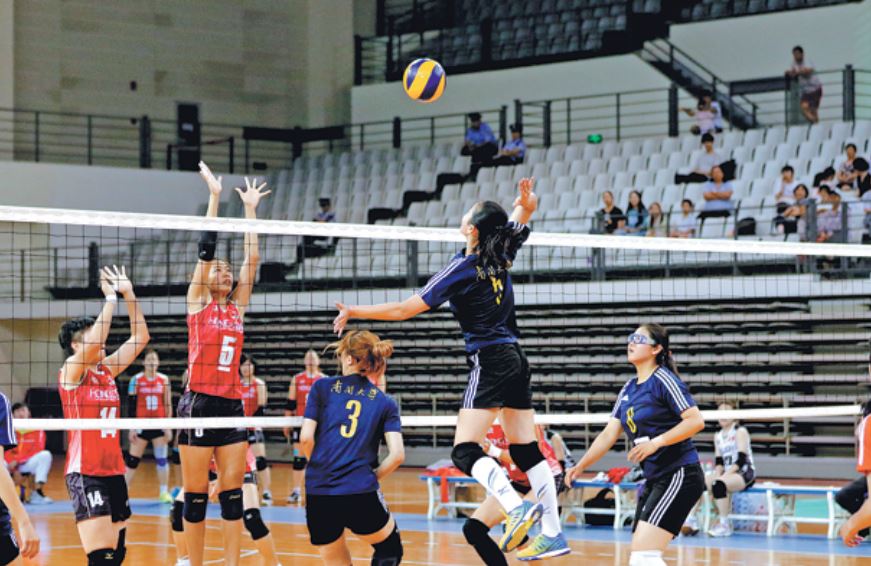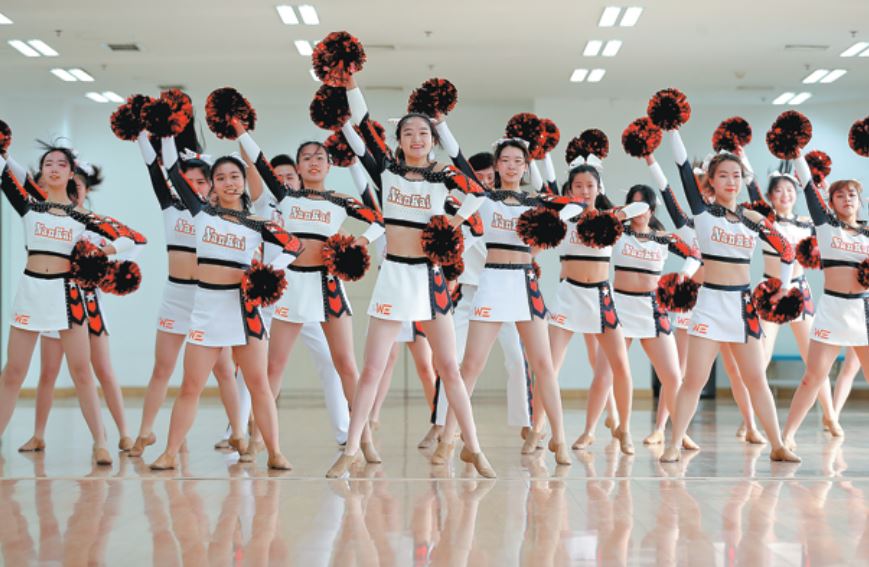



At Tianjin's prestigious Nankai University, the pursuit of physical fitness is the perfect accompaniment to study
Sports are hard-coded in the DNA of Nankai University. So much so that students at the esteemed Tianjin institution, which this year's celebrates its centenary, are renowned as much for their physical fitness as they are for academic excellence.
Finance freshman Si Yujia is a shining example of how Nankai students manage to strike a mutually beneficial balance between study and play.
With a multitude of gyms and fitness centers on campus, Si can work out anytime, anywhere, while a proliferation of sporting clubs allows her to pursue her favorite hobbies, including table tennis, swimming, badminton and - her newest addition - dragon boat racing.
"Nankai's dragon boat team is an honorable team boasting a long history and with many national prizes," Si said.
"As a member of the team, not only do I get a glimpse of this history, I get to join in the fun."
With an emphasis on teamwork, collective coordination and tradition, dragon boat racing perhaps best represents Nankai's rich sporting ethos.
One of the team's senior crew members, postgraduate student Li Yufan, is passionate about the ancient sport.
"Each move of the paddle matters in dragon boat racing. No matter how long or short the distance, the race can only be won if every member rows as best as they can," he said.

Li is one of the converted as far as Nankai's sports obsession goes. He admitted that, in his freshman year, he was shocked to see students "goofing around" with badminton rackets or basketballs, thinking it a waste of time.
However, as Si summed up, it's all about striking a balance to ensure students stay fit and healthy. "There's always some leisure time for sports," she said.
Physical exercise is not merely a part of Nankai's culture - it is actually written into the rules and regulations of the university.
Every semester, students undergo tests to track their physical fitness. A health certificate, containing the scores of these tests as well as specific athletic skills, is issued to graduates, along with their diplomas.
Only by meeting the basic requirements of the physical test can undergraduates apply for scholarships or honorary titles.
These regulations aim to encourage students to enhance their physical condition.
Ji Naxin, dean of the sports department, said students should aspire to graduate with both high academic qualifications and a healthy lifestyle.

Nankai has had sports in its genes since its establishment 100 years ago.
Zhang Boling, the university's founder, was determined to make physical activity a pillar of Nankai's reputation. He included physical education in required courses and organized campus sports.
According to historical documents, 182 sports clubs were operating in the university as of 1935, including soccer, basketball, volleyball, baseball, tennis and ice hockey.
"Mr Zhang emphasized the coordinated development of morality, intelligence and physique, and the idea that fostering sportsmanship is an integral part in shaping one's personality," Yao Ming, chairman of the Chinese Basketball Association, told a sports-related forum at Nankai earlier this year.
"This perfectly resonates with our current idea that the moral values of athletes matter more than winning or losing."
Nankai's graduates are not satisfied with just their diploma; the health certificate is equally important.
Many consider the latter as giving them an advantage over their peers in the job market.
Since 2017, a total of 4,036 students have gained the certificate when graduating, among which 229 are given a special designation as graduates with an excellent physique.
Li has already earned his certificate with his bachelor's degree, while Si is still working on it.
"The certificate is not just a recognition of great physical condition, it's an incentive to motivate students to a healthy life," she said.
Xinhua
If you have any problems with this article, please contact us at app@chinadaily.com.cn and we'll immediately get back to you.